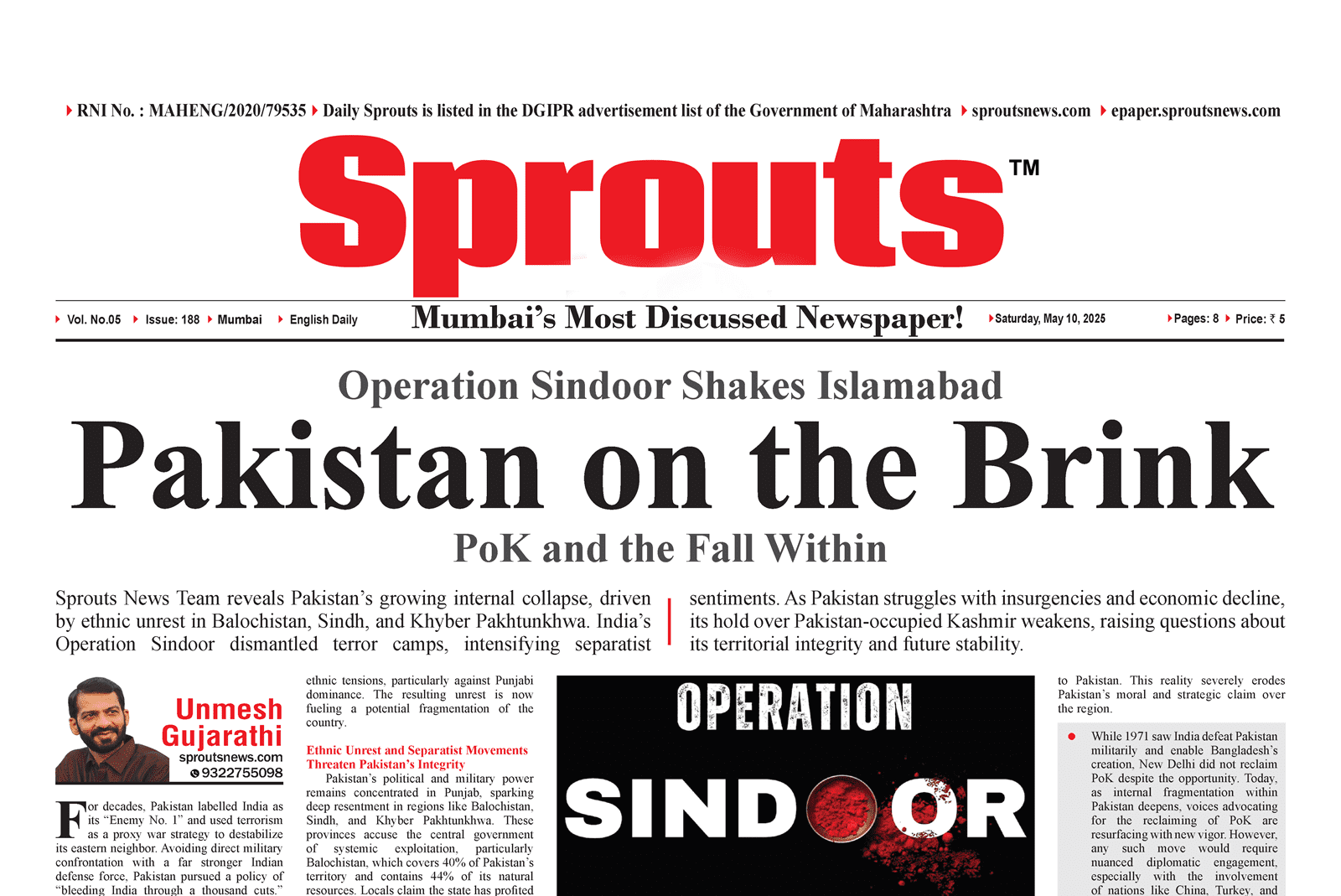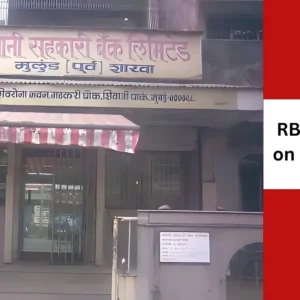Pakistan on the Brink of Collapse
• Operation Sindoor Shakes Islamabad
• PoK and the Fall Within
Unmesh Gujarathi
Sprouts News Exclusive
Contact: +91 9322755098
Sprouts News Team reveals Pakistan’s growing internal collapse, driven by ethnic unrest in Balochistan, Sindh, and Khyber Pakhtunkhwa. India’s Operation Sindoor dismantled terror camps, intensifying separatist sentiments. As Pakistan struggles with insurgencies and economic decline, its hold over Pakistan-occupied Kashmir weakens, raising questions about its territorial integrity and future stability.
Contents
Pakistan on the Brink of Collapse• Operation Sindoor Shakes Islamabad• PoK and the Fall WithinEthnic Unrest and Separatist Movements Threaten Pakistan’s IntegrityAlso Read: 2 Thane Cyber Cops Held for Selling CDR’s (Call Records) Illegally to Mohammad Sohel.Internal Disintegration and the Future of PoK
For decades, Pakistan labelled India as its “Enemy No. 1” and used terrorism as a proxy war strategy to destabilize its eastern neighbor. Avoiding direct military confrontation with a far stronger Indian defense force, Pakistan pursued a policy of “bleeding India through a thousand cuts.” However, the same terror infrastructure it nurtured is now imploding within its borders, threatening the nation’s very existence.
India’s precise strikes under Operation Sindoor not only dismantled terror camps in Pakistan-occupied Kashmir (PoK) but also disrupted key strongholds in Punjab province, including JeM and LeT bases in Bahawalpur and Muridke. These operations sent a strategic message to Pakistan’s military and unintentionally ignited internal ethnic tensions, particularly against Punjabi dominance. The resulting unrest is now fueling a potential fragmentation of the country.
Ethnic Unrest and Separatist Movements Threaten Pakistan’s Integrity
Pakistan’s political and military power remains concentrated in Punjab, sparking deep resentment in regions like Balochistan, Sindh, and Khyber Pakhtunkhwa. These provinces accuse the central government of systemic exploitation, particularly Balochistan, which covers 40% of Pakistan’s territory and contains 44% of its natural resources. Locals claim the state has profited from their land while pushing them into poverty.
Tensions escalated in March when the Baloch Liberation Army hijacked the Jaffar Express, killing 28 Pakistani soldiers. Following India’s Operation Sindoor, Baloch rebels bombed a military vehicle in Bolan Valley, resulting in further troop casualties. These attacks reflect not just a growing insurgency but a nationwide uprising against the central Punjabi-led establishment.
The Sprouts News Team has found that the Baloch struggle has now spread into targeted actions against Chinese nationals working on the China-Pakistan Economic Corridor (CPEC), as well as attacks on Punjabi laborers. The expanding ethnic resistance is no longer isolated—Khyber Pakhtunkhwa now sees renewed demands for a separate Pashtunistan, while Sindhudesh and Baltistan independence movements quietly gain traction.

Also Read: 2 Thane Cyber Cops Held for Selling CDR’s (Call Records) Illegally to Mohammad Sohel.
Internal Disintegration and the Future of PoK
Pakistan’s inability to contain domestic insurgencies calls into question its capability to retain Pakistan-occupied Kashmir. Sprouts News has analyzed that PoK has been reduced to a terror-launching hub, with little administrative or developmental value to Pakistan. This reality severely erodes Pakistan’s moral and strategic claim over the region.
While 1971 saw India defeat Pakistan militarily and enable Bangladesh’s creation, New Delhi did not reclaim PoK despite the opportunity. Today, as internal fragmentation within Pakistan deepens, voices advocating for the reclaiming of PoK are resurfacing with new vigor. However, any such move would require nuanced diplomatic engagement, especially with the involvement of nations like China, Turkey, and Azerbaijan, who still back Pakistan.
Despite dwindling global support, the need for strategic patience and geopolitical groundwork remains essential. As Pakistan weakens from within, the regional power balance is shifting—India’s consistent diplomacy and military preparedness are now more critical than ever.













